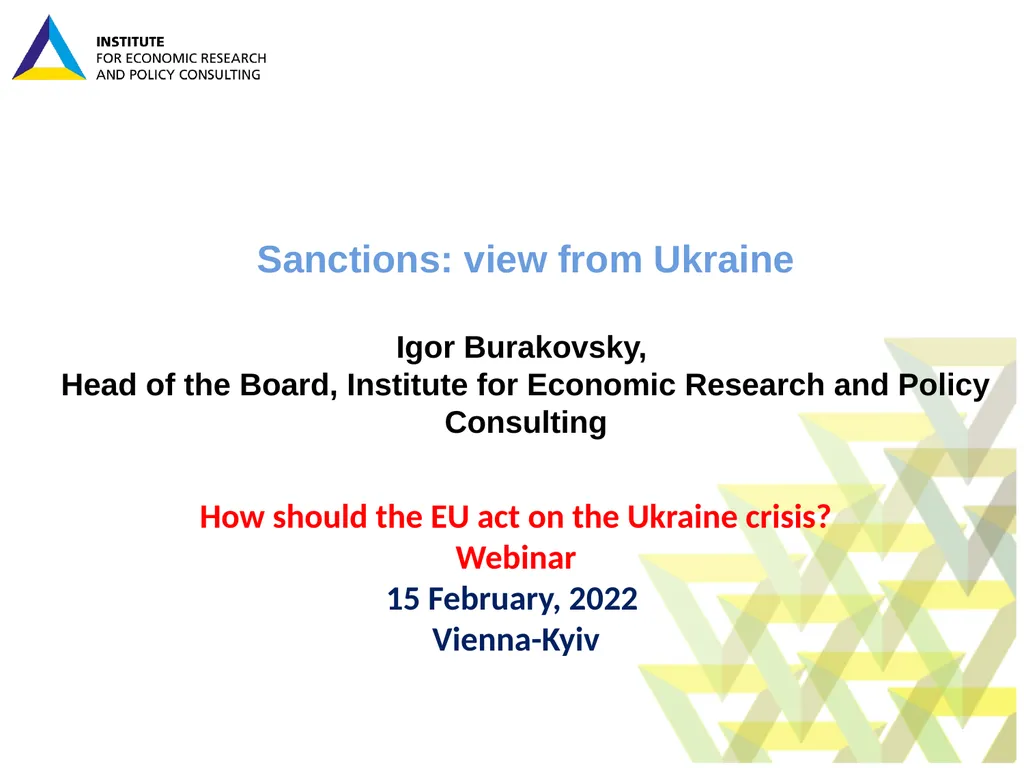
Author : jane-oiler | Published Date : 2025-07-18
Description: How should the EU act on the Ukraine crisis? Webinar 15 February, 2022 Vienna-Kyiv Sanctions: view from Ukraine Igor Burakovsky, Head of the Board, Institute for Economic Research and Policy Consulting Why Russia presents a specialDownload Presentation The PPT/PDF document "" is the property of its rightful owner. Permission is granted to download and print the materials on this website for personal, non-commercial use only, and to display it on your personal computer provided you do not modify the materials and that you retain all copyright notices contained in the materials. By downloading content from our website, you accept the terms of this agreement.
Here is the link to download the presentation.
"How should the EU act on the Ukraine crisis?"The content belongs to its owner. You may download and print it for personal use, without modification, and keep all copyright notices. By downloading, you agree to these terms.













